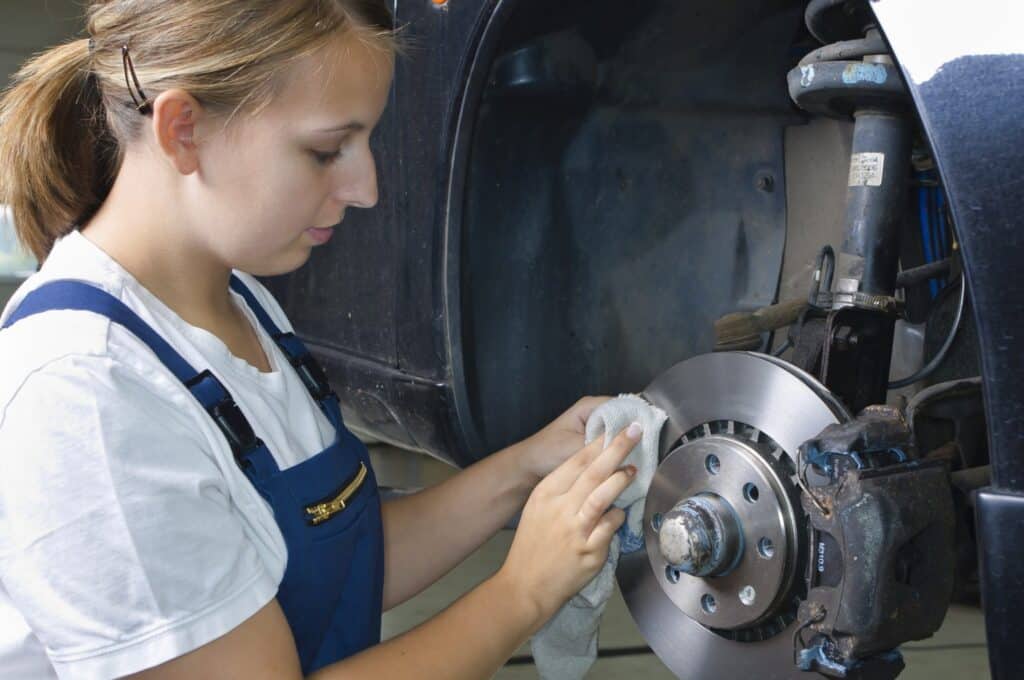Your vehicle’s braking system is arguably one of the most critical components when it comes to safety. Understanding the basics of how brakes work is not only informative but also empowers you to recognize when you might need auto brakes repair North Brunswick. In this article, we will delve into the fundamental principles of brake systems, shedding light on their mechanics and the importance of proper maintenance.
The Braking System’s Main Components
A typical braking system consists of several key components working together harmoniously to bring your vehicle to a halt. These components include:
Brake Pedal:
The brake pedal is your connection to the braking system. When you press the brake pedal, you initiate the process of slowing down or stopping your vehicle.
Brake Master Cylinder:
The brake master cylinder is responsible for converting the force applied to the brake pedal into hydraulic pressure. This pressure is then transmitted to the brakes.
Brake Lines and Hoses:
Brake lines and hoses carry the hydraulic fluid (brake fluid) from the master cylinder to the brake calipers and wheel cylinders. They must be in good condition to prevent fluid leaks.
Brake Calipers and Wheel Cylinders:
These components are located at each wheel and are responsible for applying the necessary force to the brake pads or shoes when you engage the brakes.
Brake Pads and Shoes:
Brake pads (for disc brakes) or brake shoes (for drum brakes) are in direct contact with the brake rotors or drums. They create the friction needed to slow down or stop the vehicle.
Brake Rotors and Drums:
Brake rotors (for disc brakes) and brake drums (for drum brakes) are the components that the brake pads or shoes make contact with. They play a crucial role in dissipating heat generated during braking.
How the Braking Process Works
Understanding how the braking process unfolds is essential in grasping the functionality of your vehicle’s brake system:
Application of Force: When you press the brake pedal, you apply force to the brake master cylinder.
Hydraulic Pressure: The master cylinder converts this force into hydraulic pressure, which is transmitted through the brake lines and hoses to the brake calipers and wheel cylinders.
Brake Pad/Shoe Contact: Hydraulic pressure activates the brake calipers (for disc brakes) or wheel cylinders (for drum brakes). These components squeeze the brake pads (for disc brakes) or push the brake shoes (for drum brakes) against the rotors or drums.
Friction and Heat: The resulting friction between the brake pads/shoes and rotors/drums generates heat. This heat energy is what ultimately slows down or stops your vehicle.
Release of Pressure: Once you release the brake pedal, the hydraulic pressure is relieved, and the brake pads/shoes retract from the rotors/drums.
The Importance of Regular Brake Maintenance
Now that you have a basic understanding of how your vehicle’s brakes work, it’s crucial to recognize the significance of regular brake maintenance:
Safety:
Properly functioning brakes are paramount for your safety and the safety of others on the road. Routine inspections and maintenance ensure that your brakes are always in top condition.
Extended Brake Life:
Regular maintenance helps extend the lifespan of your brake components, saving you money on replacements and auto brakes repair North Brunswick.
Performance:
Well-maintained brakes provide better stopping power and control, enhancing your overall driving experience.
Preventing Costly Repairs:
Addressing minor brake issues early through regular inspections can prevent them from developing into major, expensive problems.
Signs That You Need Brake Service
Knowing when to seek brake service is essential for maintaining your vehicle’s safety. Look out for these signs that indicate it’s time to visit an auto repair shop for brake inspection or repair:
Squealing or Grinding Noises: Unusual noises when braking can indicate worn-out brake pads or other issues.
Reduced Braking Performance: If your vehicle takes longer to stop or the brake pedal feels spongy, it’s a red flag.
Vibrations or Pulling: If your vehicle vibrates when you brake or pulls to one side, there may be issues with the brake components.
Warning Lights: If your vehicle’s brake warning light illuminates on the dashboard, it’s crucial to have it checked promptly.
Conclusion
Understanding the basics of brake systems is not only informative but also empowers you to recognize the importance of proper maintenance and the signs that you may need auto brakes repair in North Brunswick. Your vehicle’s brakes play a pivotal role in your safety on the road, making them a priority when it comes to maintenance and care. Regular inspections and timely repairs ensure that your brakes are always in top-notch condition, providing you with peace of mind and safe travels.

